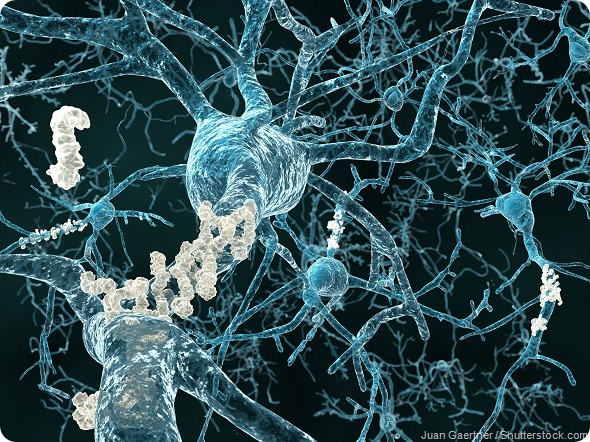New research findings have fuelled hopes of a drug that can slow down the progression of Alzheimer’s disease.
The data suggest that a medication called solanezumab can cut the disease progression rate by around a third.
Pharmaceutical company Eli Lilly presented the data at this year’s Alzheimer’s Association International Conference in Washington, D.C. The findings suggest that the drug can attack the abnormal protein aggregates called amyloid that accumulate in the brain during the progression of Alzheimer’s. These amyloid plaques are suspected to be a prime agent in the damage and death of nerve cells that occurs in Alzheimer’s disease and other forms of dementia.

Currently, drugs such as Aricept can help to manage dementia symptoms by aiding the function of dying brain cells; however, Aricept cannot actually stop these cells from dying. Solanezumab, on the other hand, may be able to keep the cells alive.
“It’s exciting to see significant advances in therapies for the prevention and treatment of Alzheimer’s disease, and it’s also important to see innovation in the management of behavioral symptoms,” says Maria Carrillo, Chief Science Officer of the Alzheimer’s Association.
Hard-to-manage care situations, wandering off and challenges with the bathroom are the primary reasons families are forced to move their loved ones into institutional care centers. Treatment advances that support family care giving and enable people to stay home longer can have a tremendous emotional and economic impact.”
Solanezumab has shown promise previously as the new drug for dementia treatment, but an 18-month trial appeared to end in failure in 2012. However, a re-analysis of the trial data by Eli Lilly suggested solanezumab may be beneficial to patients in the early stages of Alzheimer’s. When the cognition scores of patients with mild Alzheimer’s were re-examined, the results suggested that solanezumab had cut the disease progression rate by around 34%.
In 2012, Eli Lilly also started a completely new trial involving patients with mild Alzheimer’s, the results of which will confirm whether solanezumab is the breakthrough drug everyone is hoping for.
“The data from these new analyses present exciting possibilities and we look forward to the results of future studies in these experimental drugs,” says Carrillo.
If it proves to be true, it is the strongest argument to date for early Alzheimer’s diagnosis, because getting the drug earlier makes a significant difference in the outcome.”